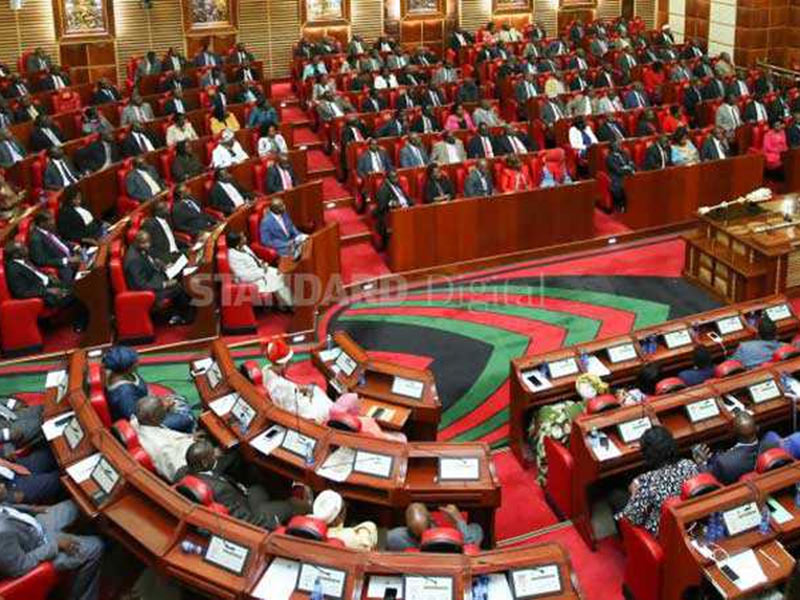 The removal of the cap on lending rates by MPs this week is the latest indicator of how much the 12th Parliament has progressively abdicated its role of protecting public interests to let the Executive have its way.
The removal of the cap on lending rates by MPs this week is the latest indicator of how much the 12th Parliament has progressively abdicated its role of protecting public interests to let the Executive have its way.
On Tuesday, MPs absented themselves from the House during voting on the proposal by President Uhuru Kenyatta, only to turn around and claim they had not been given adequate time to lobby. In an afternoon session characterised by shouting, the House failed to raise at least 233 MPs required to overturn the President's decision, with only 161 legislators present when the Division bell rang for the House to take a vote.